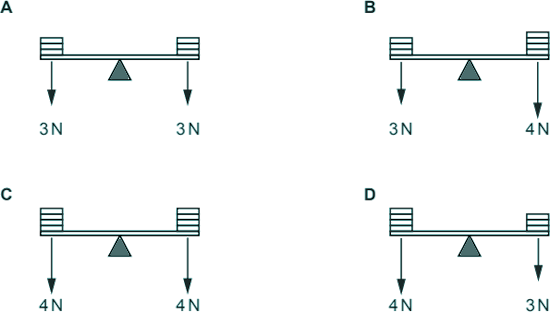Multiple Choice: Forces, Dynamics and Mechanics Q1. What is the gravitational field strength at the Earth's surface?
Q2. Cog X has 16 teeth and cog Y has 8 teeth.
Cog X is turned around two times. How many times does cog Y turn around?
Q3. What is the smallest number of forces needed to bend an object?
Q4. The diagram shows the relationship between force and extension for a spring.
Which letter on the graph shows the elastic limit of the spring being stretched?
Q5. An object travelled 800m in 40 seconds. What is the speed of the object? speed = distance travelled/time taken speed = 800 m/40 s speed = 20 m/s
Q6. An object moved 20cm with a force of 20N. Calculate the work done in moving the object. work done (J) = force (N) x distance moved in the direction of the force (m) work done = 20 N x 0.20 m work done = 4.0 J
Q7. In which of the following situations does the force cause a rotation?
Q8. Which of the following is a scalar quantity?
Q9. Which distances are the same?
Q10. A student puts different weights on four balances.
Which balance will give a clockwise moment?
|
Follow me...
|








